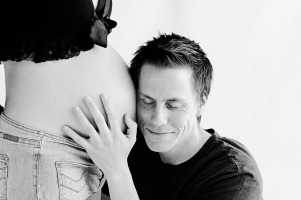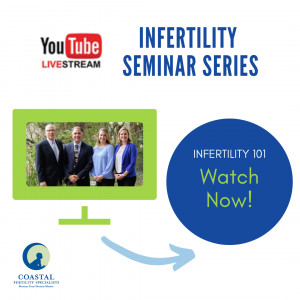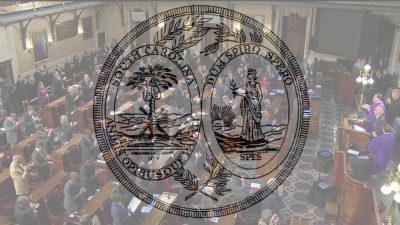Written by: Michael J. Slowey, MD
Once again, “Personhood” legislation has been introduced into both houses of our state legislature. As you know, these are transparent attempts to ban abortion, by seeking to define a “person” as a fertilized egg (zygote). Senate Bill S485 and House Bill H3920, both entitled Personhood Act of South Carolina, seek to define a “person” as when fertilization occurs. Remember that in a legal sense, personhood does not identify life, but identifies a stage of life that acquires protection from society. This has been defined by the Supreme Court at the time that a fetus is capable of surviving independently outside the mother’s womb. With our current technology, that is about 24 weeks gestation. These bills are once again trying to apply this definition to a single cell that hasn’t even seen a uterus yet.
 Personhood legislation has been introduced into the SC legislature for two decades and until 2017 was defeated in subcommittee. At that time, the senate version was passed out of subcommittee and heard at the end in the full Judiciary Committee. The bill was returned to the subcommittee by a strong 19-4 vote. However, through parliamentary maneuvering and threats to those who defeated it initially, the bill would eventually be passed to the full senate. There, due to the courageous actions of several of senators, the bill did not come to a vote. Our patients played a huge role along with the hard work of a number of groups working to protect women’s rights (WREN, ASRM, ACOG, Planned Parenthood) in letting the legislators know the threat that this legislation presents. These bills would profoundly alter obstetrical and gynecologic care. There would be no ability to provide effective reversible contraception, leading to an increase in unintended conceptions (ironic, no?). There would be no ability to treat ectopic pregnancies since the embryos do not survive the treatment. The logic of the bill would also prevent the treatment of gestational trophoblastic disease. There would be no In-vitro fertilization, leaving a quarter of a million infertility patients in South Carolina without the most effective infertility treatment. That would also mean no reliable fertility preservation for cancer patients. Because of all these restrictions, it is likely that the residency programs in our state would be in jeopardy due to the inability to be trained in contemporary treatments.
Personhood legislation has been introduced into the SC legislature for two decades and until 2017 was defeated in subcommittee. At that time, the senate version was passed out of subcommittee and heard at the end in the full Judiciary Committee. The bill was returned to the subcommittee by a strong 19-4 vote. However, through parliamentary maneuvering and threats to those who defeated it initially, the bill would eventually be passed to the full senate. There, due to the courageous actions of several of senators, the bill did not come to a vote. Our patients played a huge role along with the hard work of a number of groups working to protect women’s rights (WREN, ASRM, ACOG, Planned Parenthood) in letting the legislators know the threat that this legislation presents. These bills would profoundly alter obstetrical and gynecologic care. There would be no ability to provide effective reversible contraception, leading to an increase in unintended conceptions (ironic, no?). There would be no ability to treat ectopic pregnancies since the embryos do not survive the treatment. The logic of the bill would also prevent the treatment of gestational trophoblastic disease. There would be no In-vitro fertilization, leaving a quarter of a million infertility patients in South Carolina without the most effective infertility treatment. That would also mean no reliable fertility preservation for cancer patients. Because of all these restrictions, it is likely that the residency programs in our state would be in jeopardy due to the inability to be trained in contemporary treatments.
We believe that an embryo is neither a person nor property, but an entity deserving special respect. However, the responsibility for determining what happens to an embryo lies with the progenitors of the embryo, not with the state. An embryo, in-vitro or in-vivo, is a cluster of cells that occasionally has the unique potential to grow into a full–fledged individual. Given the considerable uncertainty that any particular embryo will successfully develop to become a person, it is unreasonable and imbalanced to give constitutional rights to fertilized eggs and embryos. Last year there was a discussion that would amend the Personhood bill to “protect” infertility patients. The amendment process can be very practical and useful when used appropriately. But the problem is that the amendments can be easily removed at several different junctures as the bill moves forward, restoring the bill to its original, and most dangerous form. The primary sponsor of the bill has stated clearly that this is an anti-abortion bill, but he also has issues with assisted reproductive technologies (such as IVF) and contraception. Thus, in our judgement, even beneficial amendments have little chance of surviving. So we do not support amending the bill. However, I do not support amendments for a more basic reason: an amendment is a tacit for approval of the bill’s basic premise, which is simply not true.
It appears that it is going to be an interesting spring once again. We will keep you posted on the developments regarding these bills so that you can stand up for your fertility right. Below is the link to the Senate Judiciary Committee. If you know any of these senators, contact them and let them know what you think. Click here for a list of names and contact information.
We will keep you updated on these bills, and I will be happy with provide you with more details regarding this Bill, the legislative process, as well as the names of the senators that stood up for the women of South Carolina. Please do not hesitate to give me a call if you have any questions.
Related Posts

January 09, 2020
The Four Biggest Reasons Not to Delay Fertility Treatments

March 19, 2020
Why Your Fertility is Safe in Our Hands

March 13, 2020
Coastal Patient Shares Her Journey Through Endometriosis and Infertility to Parenthood

January 25, 2021
Infertility 101: All Your Questions Answered

February 19, 2021
Coastal Fertility Specialists Opens a State-of-the-Art Office in Nexton



